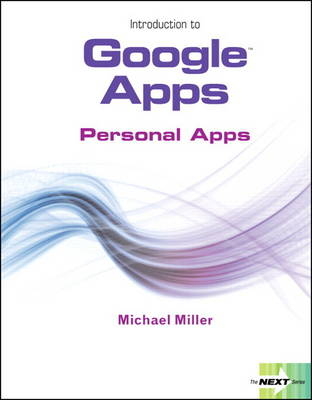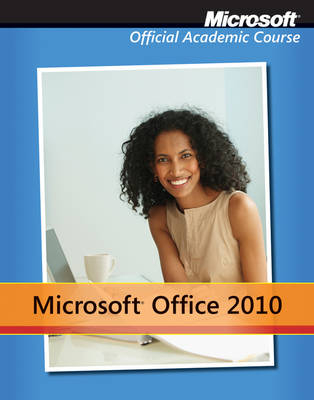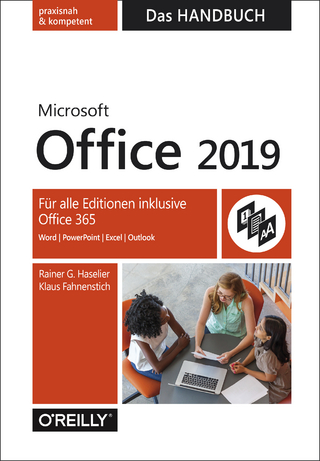
Next Series
Pearson (Verlag)
978-0-13-255212-7 (ISBN)
- Titel ist leider vergriffen;
keine Neuauflage - Artikel merken
Michael Miller has written more than 80 nonfiction how-to books over the past twenty years, including Googlepedia: The Ultimate Google Resource, Photopedia: The Ultimate Digital Photography Resource, Absolute Beginner's Guide to Computer Basics, and The Complete Idiots's Guide to Music Theory. His books have collectively sold more than 1 million copies worldwide. Miller has established a reputation for his conversational writing style and for clearly explaining complex topics to casual readers. More information can be found at the author’s website, located at www.molehillgroup.com.
Introduction xvii
Audience and Organization xviii
Conventions Used in This Book xix
Closing Thoughts xix
Part I: Fundamentals
HOUR 1: Introducing Windows Phone 7 1
Experiencing Life in Motion 2
Ensuring a Common Foundation 3
Introducing the Application Platform 6
Introducing Metro 11
Summary 18
Q&A 19
HOUR 2: Considerations for Desktop Developers 21
Understanding the Requirements 21
Identifying Users and Their Mobile Needs 22
Getting Data for Your Application 25
Building the User Interface 27
Summary 29
Q&A 29
Workshop 29
HOUR 3: Choosing an Application Framework 31
Introducing the Application Frameworks 31
Understanding Silverlight 32
Understanding the XNA Framework 37
Summary 41
Q&A 42
Workshop 43
Exercise 43
HOUR 4: Learning Silverlight Basics 45
Understanding Silverlight 45
Silverlight Coding Fundamentals 46
Exploring Silverlight Controls 49
Understanding Data Binding 62
Summary 70
Q&A 70
HOUR 5: Understanding Page-Based Navigation 73
Introducing the Page Navigation Model 74
Using the Navigation Service 75
Working with Page Navigation Events 79
Passing Data with the Navigation Context 82
Summary 83
Q&A 83
Workshop 84
Exercise 85
HOUR 6: Using the Sensors 87
Working with the Accelerometer 87
Using the Compass 91
Responding to the Gyroscope 93
Determining Motion 95
Summary 97
Q&A 97
Workshop 97
Part II: Developing Applications with Silverlight
HOUR 7: Working with the GPS and the Bing Map Control 99
Building a Location-Aware Application 99
Working with the GPS 101
Using the Silverlight Bing Map Control 104
Drawing on the Map 106
Summary 107
Q&A 108
Workshop 108
Exercise 109
HOUR 8: Developing Finger-Friendly Applications 111
Working Within Phone Screen Limitations 111
Understanding Touch Targets 113
Working with Gestures 116
Summary 126
Q&A 126
Workshop 127
Exercises 127
HOUR 9: Consuming Web Data Services 129
Using Raw Web Communication 129
Using Windows Communication Foundation 135
Supporting Sockets 139
Summary 139
Q&A 140
Workshop 140
Exercise 140
HOUR 10: Working with REST, Syndication Feeds, and OData 141
Consuming REST Services 141
Working with Syndication Feeds 147
Using the OData Libraries 151
Summary 156
Q&A 156
Workshop 157
Exercise 157
HOUR 11: Integrating with Windows Phone Hubs 159
Introducing the Windows Phone Hubs 160
Integrating with the Music + Videos Hub 164
Integrating with the Pictures Hub 170
Summary 174
Workshop 174
Exercise 175
HOUR 12: Integrating with Microsoft Services 177
Integrating with Microsoft Bing 177
Translating Text 185
Summary 188
Workshop 188
Exercise 189
HOUR 13: Performance and Debugging 191
Tuning Application Startup 191
Measuring and Tuning Your Application 195
Working with Asynchronous and Background Tasks 198
Tuning Silverlight Performance 201
Summary 203
Q&A 203
Workshop 204
Exercises 205
HOUR 14: Understanding Push Notification Services 207
What Are Push Notification Services? 207
How Do Notification Services Work? 208
Opening a Notification Channel 210
Sending and Receiving Notifications 212
Summary 215
Q&A 216
Workshop 216
Exercise 216
HOUR 15: Understanding Live Tiles and Toast Notifications 217
What Are Live Tile and Toast Notifications? 217
Working with Toast Notifications 219
Live Tile Notifications 223
Summary 227
Q&A 228
Workshop 228
Exercise 229
HOUR 16: Working with Data 231
Determining Network Connectivity 231
Managing Local Data 232
Working with Data from a Service 243
Keeping Data Synchronized 245
Enforcing Business Rules 246
Summary 246
Q&A 246
Workshop 247
Exercises 248
Part III: Developing Games with the XNA Framework
HOUR 17: Introduction to XNA Programming 249
Understanding the Game Loop 249
Adding Game Content 253
Rendering Textures 254
Rendering Text 255
Adding a Background 258
Handling User Input 259
Summary 261
Q&A 261
Workshop 261
HOUR 18: Building a Simple Game 263
Game Physics Made Simple 263
Detecting Collisions 269
Using Accelerometer-Controlled Movement 272
Adding the Challenges 274
Summary 278
Q&A 278
Workshop 278
Exercise 279
HOUR 19: Adding Polish to Your Game 281
Adding Gameplay 281
Enhancing the Ball-Dropping Experience 287
Adding Haptic and Audible Feedback 289
Summary 290
Q&A 290
Workshop 291
Part IV: Diving Deeper
HOUR 20: Internationalizing Your Application 293
Understanding Internationalization 293
Understanding Culture 295
Globalization at Work 297
Localizing Application Resources 300
Summary 306
Q&A 307
Workshop 307
Exercise 308
HOUR 21: Working with Phone Internals 309
Understanding Launchers and Choosers 309
Sending Messages 311
Interacting with the Marketplace 314
Playing Media Content 316
Making Phone Calls 317
Searching and Web Browsing 319
Working with the Camera and Pictures 320
Playing FM Radio 322
Summary 323
Q&Av323
Workshop 324
Exercise 324
HOUR 22: Being a Good Mobile Citizen 325
Theming 325
Preserving Application State 334
Implementing an About Page 340
Summary 341
Q&A 341
Workshop 342
Exercise 342
HOUR 23: Distributing Applications with the Marketplace 343
Introducing the Marketplace 343
Joining the Marketplace 348
Configuring Your Application 349
Submitting Your Application 352
Using Trial Services 356
Summary 357
Q&A 357
Workshop 357
Exercise 358
HOUR 24: Marketing and Selling Your Application 359
Marketing Using Basic Techniques 359
Using Trial Services 361
Generating Sales Using the About Page 367
Understanding the Effects of Globalization 367
Entering Contests 369
Summary 370
Q&A 370
Resources 371
Author Resources 371
Other Helpful Resources 371
Index 373
| Erscheint lt. Verlag | 1.12.2011 |
|---|---|
| Sprache | englisch |
| Maße | 216 x 276 mm |
| Gewicht | 735 g |
| Themenwelt | Informatik ► Office Programme ► Office |
| Informatik ► Office Programme ► Outlook | |
| ISBN-10 | 0-13-255212-4 / 0132552124 |
| ISBN-13 | 978-0-13-255212-7 / 9780132552127 |
| Zustand | Neuware |
| Informationen gemäß Produktsicherheitsverordnung (GPSR) | |
| Haben Sie eine Frage zum Produkt? |
aus dem Bereich


